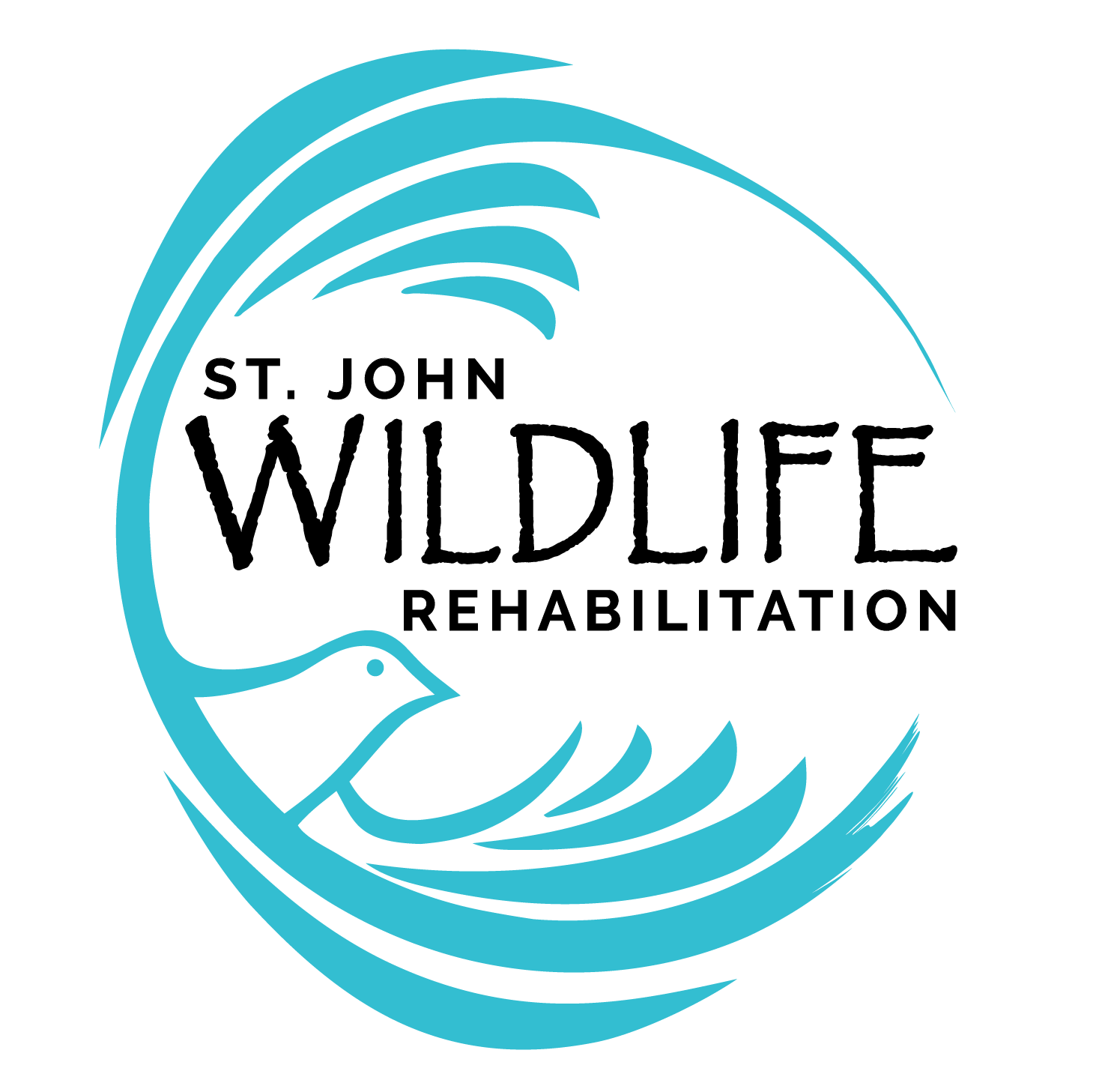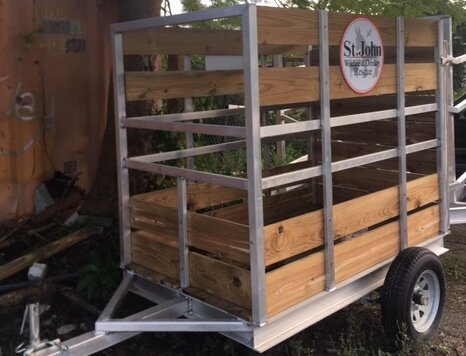News
Below are just a few stories. To keep up with our latest efforts, follow us on Facebook, or sign up for our newsletter.
Wildlife and Donkey Rescue provides safety net for island’s animals
By: The Virgin Island Daily News
March 24, 2021
“A group of visitors from Texas were enjoying a day at Haulover when the peaceful sounds of the waves lapping the shore were pierced by the cry of a baby goat. The visitors followed the sound to an unoccupied hurricane-damaged home where they discovered a well full of water, and hovering just above the surface was the mouth of the baby goat that had been emitting the cries. The group knew exactly who to turn to for help — St. John Wildlife and Donkey Rescue’s Pam Holmes, who had rehabbed a baby chick the visitors had found a few days earlier.
“They pulled the goat out and brought him to me,” said Holmes. “I wrapped him in fleece blankets and put him on a heating pad, then brought him to the vet the next day. He had a high fever so he was put on a course of antibiotics, and he’s doing great now.”
Though the nonprofit wildlife rescue organization’s main focus is on birds, Holmes and Phyllis Benton, who founded the organization, do their best to help any animals who are in need. Benton has been federally permitted to conduct wildlife bird rehabilitation since 2007, while Holmes’ interest in animals began on one of the darkest days in America’s history.“
Island nonprofits hoping to inspire care for birds in times of disaster with cracked corn distribution project
By ANDREA MILAM, The Virgin Island Daily News
August 27, 2020
“After Hurricanes Irma and Maria ripped through the territory in 2017, some island residents put out sugar they had on hand for nectar-feeding birds like banaquits and hummingbirds. Seeing the birds come to call brought joy during an otherwise difficult time, and this simple effort likely helped the island’s nectar feeders rebound after the storms, which defoliated many of the plants these species rely on for food.”
Cornell University veterinary students to do survey and health assessment of feral donkey herd
March, 2020
One of our planned projects - to survey and do a health assessment of our feral donkey herd with veterinary students from Cornell University - was just about ready to begin, then the pandemic hit. It is a very exciting project that we will revisit as soon as it is safe to do so. We continue to seek support for this important effort.
Below is the proposed project description from Dr. Erin Goodrich, DVM, DACVPM, Diagnostic Intelligence Officer and Animal Health Diagnostic Center from the College of Veterinary Medicine at Cornell University:
“The purpose of this program: To develop a scientific-based health and management plan for the feral donkeys on the island. I have developed a reputation as an advocate for donkeys due to some recent work involving a similar sort of project for the island of Barbuda as well as several other donkey-related projects in the states. Here at Cornell I believe we have an ideal organization already in place that may be suitable to utilize for this scenario. My colleague, Dr. Paul Maza, has developed and now directs FARVets here at the Cornell College of Veterinary Medicine (https://www.farvets.org/). This group has been focused on providing veterinary care for animals and education to people in many remote, developing areas of the world. While they have traditionally focused on small animals, Dr. Maza and I both feel that we could utilize the same model and serve donkeys as well. The projects are funded, for the most part, through program fees that veterinary students pay to participate. These fees cover the costs of supplies, materials, equipment, medications, etc and in turn, the program provides wonderful international veterinary experience for the students. We are hoping to be able to organize a trip to St. John this year (possibly as early as May) to gain a better understanding of the health needs of the donkey population. We would hope to achieve a census and initial health assessment of the population that could then be used to develop a sustainable plan for managing the population in the long term. In addition, we could provide educational information to anyone interested on the island, such as rescue groups who may occasionally need to respond to donkey-related situations and could use advice on handling them safely. We would love to assist the donkeys and the people in any way that we can. In addition to what I’ve mentioned above, we could also likely offer some diagnostic tests for the donkeys that might provide useful pathogen exposure information for the donkeys, which in turn could be valuable for other animals on the island (horses, small ruminants) and perhaps people as well."
Rescue trailer received to support transport of sick or injured animals through generous grant from SJCF
By PAMELA HOLMES & PHYLLIS BENTON
February, 2020
Help sometimes comes in a unique form. Safe transport of sick or injured donkeys for veterinary care was an immediate needs that called loudly for a solution. We had seen and assisted good samaritans as they struggled to get a large injured animal into the back of a pickup truck; there had to be a better way. Our hope was to assist others who were already providing support to equines by providing a safe, reliable way to transport those animals for needed veterinary care.
Shortly after our organization received its charitable nonprofit status we began brainstorming to address this challenge. We knew some type of trailer was needed but were mindful of the island’s terrain and weather. Meanwhile, a very passionate group member met with the St. John Community Foundation and filled out a grant application to fund this project. SJCF agreed there was a pressing need and generously awarded a grant for this project. But the question remained: what would work best on an island with narrow, often unpaved roads and quite a few steep hills? We did extensive research and sought the advice of equine experts including Dr. Laura of Canines, Cats and Critters. It was agreed that a light-weight aluminum trailer would be best. After weighing the costs to purchase and ship an aluminum trailer from the states, we faced sticker shock; it was much more than we originally budgeted. Luckily, one of our members had on her thinking cap: let's have the trailer made locally, employ local workers, avoid shipping costs and get exactly what we need. We reached out to Love City Welding to fabricate a custom trailer for us. It was a win-win!
The trailer is complete and available for use by our organization, Dr. Laura and her team, and Carolina Corral for transport of sick or injured donkeys or other large animal for veterinary care. Our thanks to St. John Community Foundation for funding this project and to everyone who played a role in making it happen. Regarding the feral herd - we are still looking to form a centralized response structure including identifying and training volunteers to be a part of a hands-on rescue network. If you would like to be a part of that effort, please contact us!




